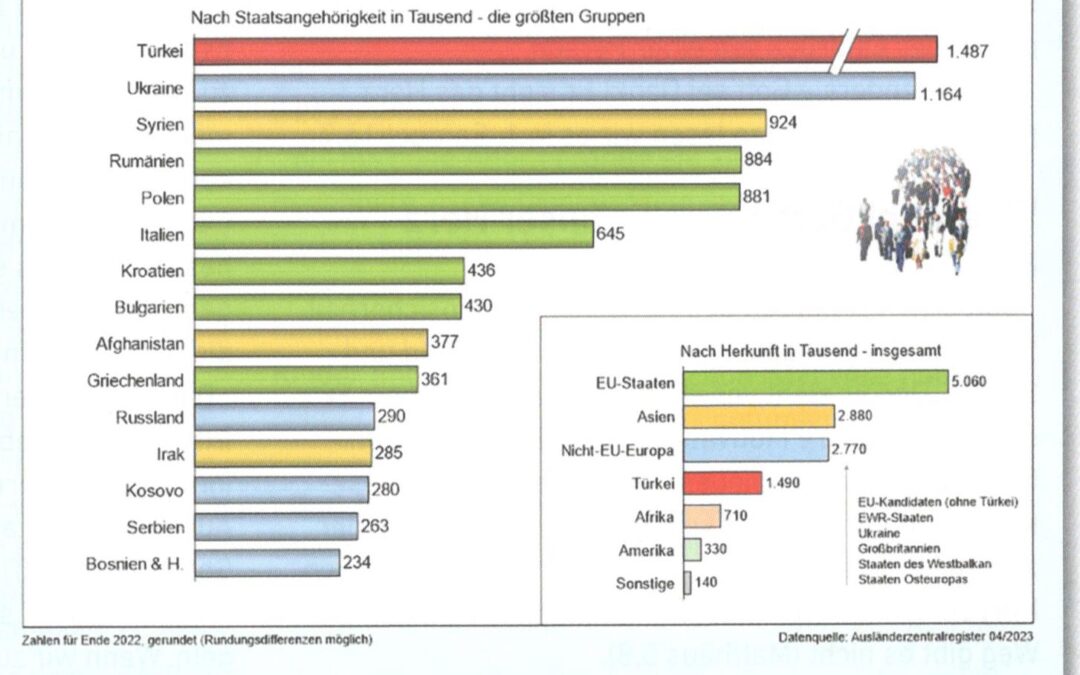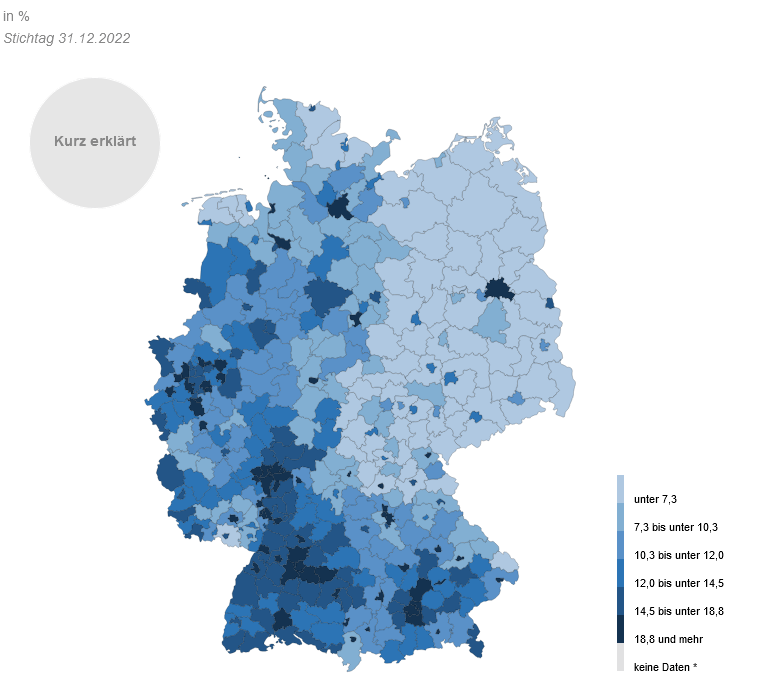
Migrants' countries of origin are often classic mission countries
Where do migrants in Germany come from? If you look at the statistics, you realize that many of the migrants' countries of origin are classic mission countries, i.e. countries with unreached ethnic groups. Turkey leads the way with roughly 1.5 million people. As a rule of thumb, the same number includes people with German citizenship, but from this country of origin. It is important to note that this rule of thumb only applies to people from countries of origin who have been living in Germany for several decades. This excludes Ukraine. This means that around 3 million people with a Turkish background live in Germany. Syria (900,000), Poland (almost 900,000), Italy (650,000), Afghanistan (380,000), Greece (360,000), Russia (290,000), Kosovo (280,000), Serbia (260,000) and Bosnia (230,000) would also fall into this category of classic mission countries. Note: The figures in brackets only describe the citizenship.
How many of these people can speak German really well? How many of these people read regularly in German? Certainly not the majority. That's why oral stories and appealing videos are a good way to tell the Good News to everyone, including the many migrants in Germany. After all, migrants' countries of origin are often classic mission countries. If you want to know more about how to share the Good News in simple German, click on Training.
Constraints: There is no generally recognized definition for classic mission countries. This is more of a personal assessment. I follow Joshua Project's definition of Unreached. Unreached counts as: Less than 2 % evangelicals.


Recent Comments